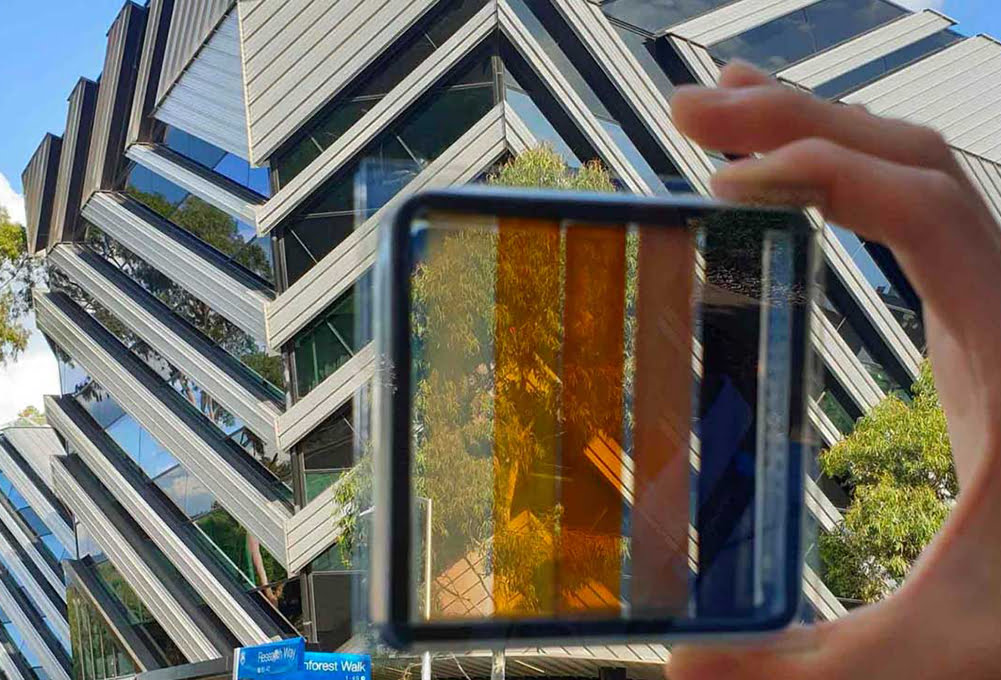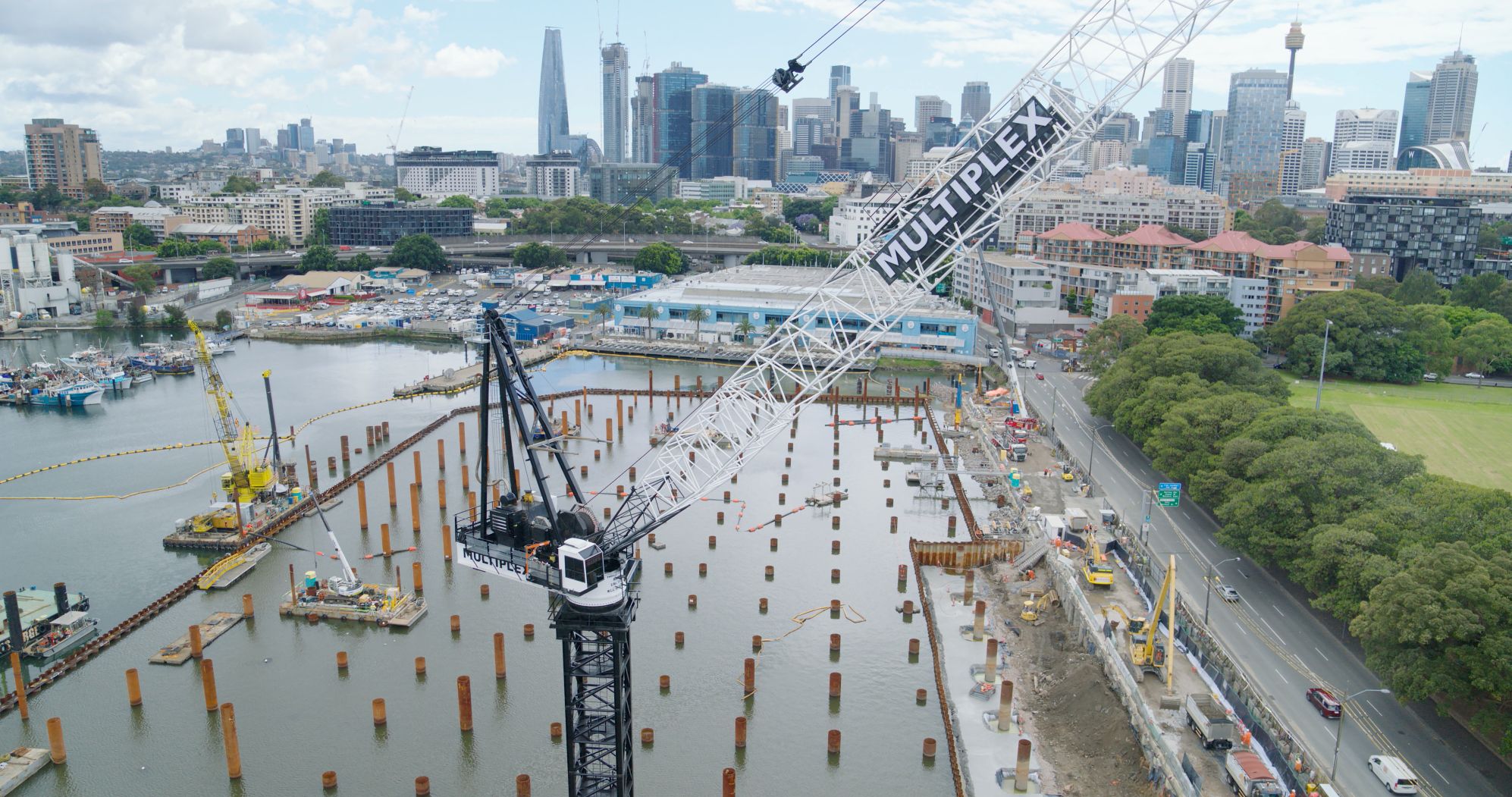
Monash University has partnered with Australia’s national science agency CSIRO to develop windows that can efficiently generate solar electricity. The project is a finalist for the Eureka Prize for Innovative Use of Technology.
Led by Pro Vice-Chancellor (Research Infrastructure) Professor Jacek Jasieniak of the Department of Materials Science and Engineering and Dr Jenny Zhou of the Department of Civil Engineering, and working with a group led by Dr Anthony Chesman at CSIRO, Monash researchers have created semi-transparent solar cells made from materials called metal halide perovskites.
The physical characteristics of perovskites mean they are very efficient at generating electricity while also being transparent, and they can be printed as very thin films, making them ideal candidates for integrated applications in buildings.
Researchers have also shown how films made using metal halide perovskites can be “tuned” to achieve optimal balance between light transmission and power generation.
Modelling shows solar windows could produce up to 100 per cent of the total electricity needs of a fully-glazed skyscraper, thus substantially reducing a building’s net CO2 emissions.
Future development work in the project will focus on translating laboratory-based production methods to scalable production methods suitable for window sizes commonly used in construction.
To view other finalists visit https://australian.museum/get-involved/eureka-prizes/2023-eureka-prizes-finalists/












